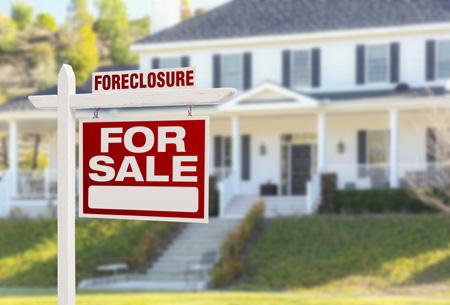This is a really important thing to consider before you start shopping and fall in love with a  house you can’t afford.
house you can’t afford.
What does “value” mean to you? To me, the word “value” means priceless—things money cannot buy.
The problem with the American mentality is that we put such importance on material things and not on things that are valuable.
I cringe when I read inspirational or financial books that encourage people to strive to buy their “dream home.” What kind of message does that send? That people can only be as happy as the size of the home they live in? That they are better parents for providing a bigger home for their children?
The economic and real estate collapse we’ve recently endured should deliver a big message for those people striving to buy their “dream home.” I’m going to tell you: Do not buy your dream home. Learn what you can afford on paper, and then buy a home for half that price.
I know…you’re thinking, “WHAT?”
A client account I recently read about out of Austin, Texas, is a perfect example. After a couple finished school together in 2007, they decided to buy their first home. They went online to a dozen different mortgage calculators, and sat down with a mortgage broker. The mortgage calculators asked about their income and any debt they had.
They had no debt except car payments, so the average mortgage calculator said they could afford a $450,000 home. They looked online and found some very beautiful homes in that price range around the Austin area. They were excited to see they’d be able to buy a three-thousand square-foot home, with a bonus room, office, four or five bedrooms, island kitchen with granite counter tops and possibly a swimming pool.
They said it was like a giant carrot was dangling in front of them. The couple spent their weekends driving by these homes, and imagined living in one of them very soon. But one thing puzzled them. Each time they “crunched some numbers” and saw what their new budget would be, they never had enough money (or they were stretching their budget too thin). They asked each other, “Why do these mortgage calculators tell us we can afford a $450,000 home when our own calculator tells us otherwise?”
Mortgage calculators don’t ask you about the valuable and priceless things you want and need to do for your family. If you buy a home at the maximum you qualify for (which most Americans do), then you’ll have very little left for the most valuable things in life, or you’ll pay for the valuable things anyway and end up in credit card debt.
Here’s an example list of valuable expenses that may be of importance that the mortgage calculator never asked about:
Pre-school for 2 children: $10,000 per year
College fund for both kids: $233 per month
Retirement planning, IRA, investments: $650 per month
Life insurance (for both spouces): $120 per month
Health insurance: $820 per month
Disability and catastrophic insurance: $225 per month
Sponsoring three children in Africa: $105 per month
Tithing and charitable contributions: $550 per month
Gym membership: $49 per month
Soccer classes for 2 kids: $110 per month
Ballet class: $54 per month
Gymnastics class: $48 per month
Swimming lessons: $300 per year
Tickets to professional sports games: $500 per year
Tickets to concerts and theater performances: $500 per year
Sea World/Entertainment: $1,000 per year
Organic groceries: $4,000 per year
Doctor visits, co-payments: $600 per year
Landscaping, home upgrades: $3,000 per year
Birthday, baby shower gifts, etc.: $600 per year
If this was the Texas couple’s list, how in the world would they have been able to afford a $450,000 home and still pay for pre-school for both children, soccer/ballet classes, summer camp, Sea World, health insurance, doctor visits, organic groceries and donations to charity? Right, they couldn’t have afforded it without using credit cards.
So, they chose to buy a modest home for $215,000—half of what they’d qualified to buy! Their house doesn’t have granite countertops, and they don’t have a swimming pool. They converted one of the bedrooms into an office and their landscaping is sparse. But by buying a house for half of what they qualified for on paper, they have the ability and freedom to invest in their future, donate to charity, start a business, send their children to the best schools in town, eat quality food and travel the world—all without incurring a nickel of debt.
Sure, it was a bit deflating to their ego to go shopping for a 5,000 square-foot home with all the bells and whistles and end up buying a home half that size. But now that they’ve lived in their home for almost four years, they realize it was the best decision they ever made. If they had bought a $450,000 home, would they be happier than we are now? Of course not. Would their friends respect us and cherish their friendship more? I hope not (if so, then they weren’t really friends anyway). Would their parents be more proud of them? I don’t think so.
So why do it? Why feel pressured to go too far and buy the most house possible—and then live under constant stress to pay for it all.
“Money does not buy happiness; Scripture asserts this, research confirms it. Once you reach the median level of income, roughly $50,000 per year, wealth and contentment go their separate ways, and studies find that a millionaire is no more likely to be happy than someone earning one-twentieth as much.” — Nancy Gibbs, Time magazine, April 27, 2009
What’s valuable to you and your family? What is priceless? Budget for these things first, and then see what you have to spend on a home. In five, ten or twenty years when you look back on your life, what do you want to see? That you barely made your payments on your home each month, or that you were able to do everything you ever wanted to do with your family stress and debt-free? Picture your family in a smaller, more manageable home. Would your marriage be any different? Would your friends abandon you? Of course not.
What kind of home can you afford—really afford?
Ruth Schoenherr is a mortgage broker who will help you find home loans in the Clearwater, Palm Harbor, Largo, Safety Harbor, St Petersburg and Tampa Bay area. For more information, go to her web site at www.ClearwaterMortgageBroker.net.
 garden along with it. Rather than try to maintain unfamiliar territory and risk a lifeless landscape, get to know your garden with these three tips.
garden along with it. Rather than try to maintain unfamiliar territory and risk a lifeless landscape, get to know your garden with these three tips.







